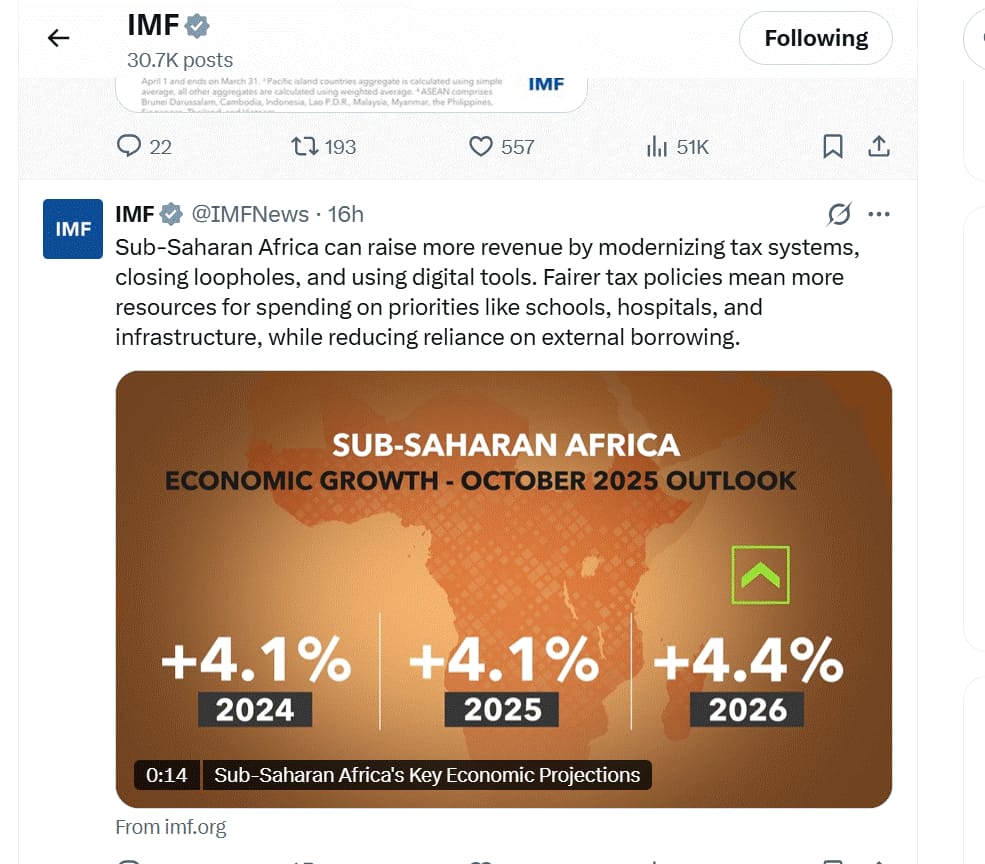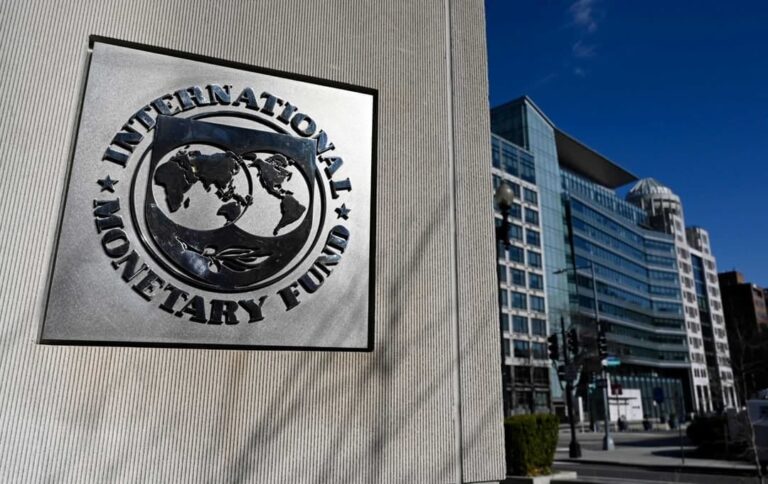The International Monetary Fund (IMF) has suggested ways in which Sub-Saharan African countries can raise more revenue.
The IMF said that they can do so by modernising their tax systems, closing loopholes, and using digital tools.
According to the Fund, fairer tax policies mean more resources for spending on priorities like schools, hospitals, and infrastructure, while reducing reliance on external borrowing.
A post on its X page said, “Sub-Saharan Africa can raise more revenue by modernising tax systems, closing loopholes, and using digital tools. Fairer tax policies mean more resources for spending on priorities like schools, hospitals, and infrastructure, while reducing reliance on external borrowing.”
 The global economy, the Fund said it is adjusting to a landscape reshaped by new policy measures.
The global economy, the Fund said it is adjusting to a landscape reshaped by new policy measures.
Some extremes of higher tariffs were tempered, thanks to subsequent deals and resets. But the overall environment remains volatile, and temporary factors that supported activity in the first half of 2025—such as front-loading—are fading.
As a result, it said, global growth projections in the latest World Economic Outlook (WEO) are revised upward relative to the April 2025 WEO but continue to mark a downward revision relative to the pre-policy-shift forecasts.
Global growth is projected to slow from 3.3 percent in 2024 to 3.2 percent in 2025 and 3.1 per cent in 2026, with advanced economies growing around 1.5 percent and emerging market and developing economies just above 4 percent. Inflation is projected to continue to decline globally, though with variation across countries: above target in the United States—with risks tilted to the upside—and subdued elsewhere.
Risks are tilted to the downside. Prolonged uncertainty, more protectionism, and labor supply shocks could reduce growth. Fiscal vulnerabilities, potential financial market corrections, and erosion of institutions could threaten stability.
Policymakers are urged to restore confidence through credible, transparent, and sustainable policies. Trade diplomacy should be paired with macroeconomic adjustment. Fiscal buffers should be rebuilt. Central bank independence should be preserved. Efforts on structural reforms should be redoubled.
Source:Lovinghananews.com


